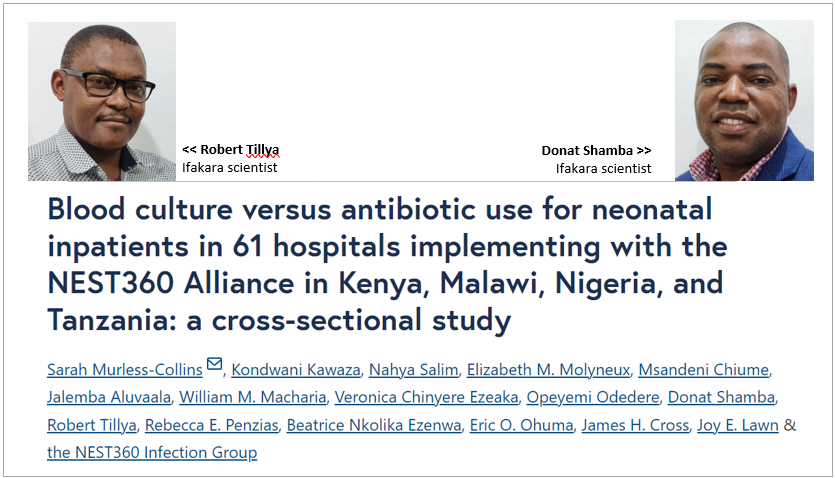
NEWBORNS: Multi-country study highlights an alarming gap in diagnostic practice

A comprehensive analysis involving 61 hospitals from four countries in Africa has found a significant gap in infection detection among newborns, exposing them to healthcare-associated infections. The study, which involved over 140,000 newborns, reveals an alarming underuse of blood culture – the current ‘gold standard’ for infection detection.
Published in the BMC Pediatrics journal, the study found that despite 70% of newborns being prescribed antibiotics, only 6% underwent diagnostic blood cultures – a difference that raises concerns about the test's accuracy and potentially cause delayed or missed treatment, leading to negative outcomes for the newborns.
The study was led by a group of scientists from the UK, Africa and the USA in partnership with the NEST360 Alliance. They analyzed the gap between blood culture use and antibiotic prescriptions in hospitals implementing the Newborn Essential Solutions and Technologies (NEST360) program in four African countries of Kenya, Malawi, Nigeria, and Tanzania between July 2019 and August 2022.
The NEST360 works to reduce neonatal inpatient deaths by improving level-2 newborn care in hospitals through device installation, training, quality improvement, and healthcare-associated infections (HCAIs) detection.
Learn more about NEST360 here
Identifying causes of gaps
The scientists identified several factors contributing to the gap in blood culture utilization, including challenges such as understaffing, unmet training needs, limited communication between laboratories and neonatal units, and inadequate accreditation in district laboratories.
Contrary to expectations, the study found that the gap in blood culture utilization was not due to a lack of basic laboratory infrastructure. While all hospitals included in the study had laboratories, those with microbiology services performed less than 50% of the necessary blood cultures for newborns on antibiotics, highlighting the underutilization of available diagnostic testing.
Closing the gap
In response to these findings, the scientists emphasize the urgent need for quality improvement strategies in low- and middle-income countries (LMICs) to bridge the gap between antibiotic prescribing and blood culture use and ultimately improve outcomes for newborn patients.
“Whilst major gaps between antibiotic and blood culture use for admitted newborns are present, there is potential to improve,” wrote the scientists.
Moreover, they also underscore improvements, particularly in NEST360-associated hospitals, stating, “In NEST360-associated hospitals, variation in blood culture use indicates that strategies for system strengthening can be locally targeted. Efforts should focus on increasing routine blood culture use and improving the laboratory-ward interface to reduce the burden of neonatal HCAIs and AMR, especially in hospitals with functional microbiological services.”
About a blood culture test
A blood culture is a medical laboratory test to check for bacteria or other germs in a blood sample. Under normal conditions, the blood does not contain microorganisms: their presence can indicate a bloodstream infection such as bacteremia or fungemia, which in severe cases may result in sepsis.
Learn more about blood culture here
Contributors of the study
The study was done in partnership with the NEST360 Alliance and contributions from scientists in the UK, Malawi, Tanzania, Kenya, Nigeria and the USA.
The scientists include Sarah Murless-Collins, Rebecca Penzias, Eric Ohuma, James Cross and Joy Lawn from the London School of Hygiene & Tropical Medicine (LSHTM); Kondwani Kawaza, Elizabeth Molyneux and Msandeni Chiume Kamuzu University of Health Sciences; Jalemba Aluvaala from KEMRI -Wellcome Trust Research Programme; William Macharia from Aga Khan University, Nairobi; Veronica Chinyere Ezeaka and Beatrice Nkolika Ezenwa from the University of Lagos and Opeyemi Odedere from Rice University.
From Ifakara Health Institute scientists involved in the study include Donat Shamba, Robert Tillya and Nahya Salim who is also affiliated to the Muhimbili University of Health and Allied Sciences (MUHAS).
Read the full publication here
